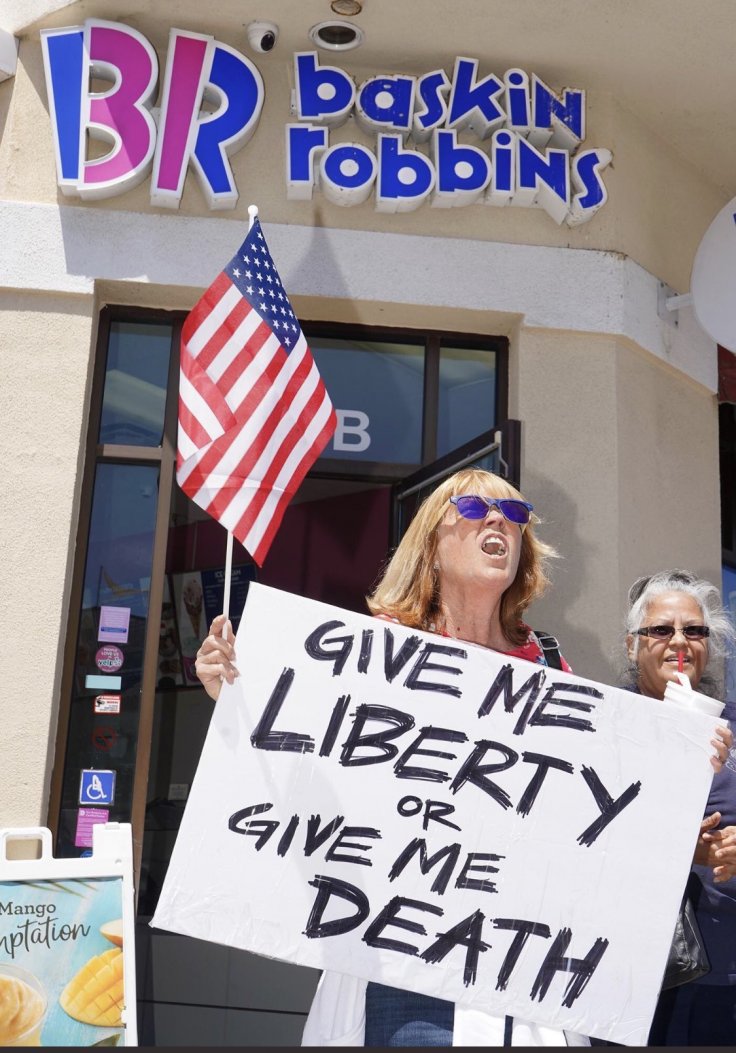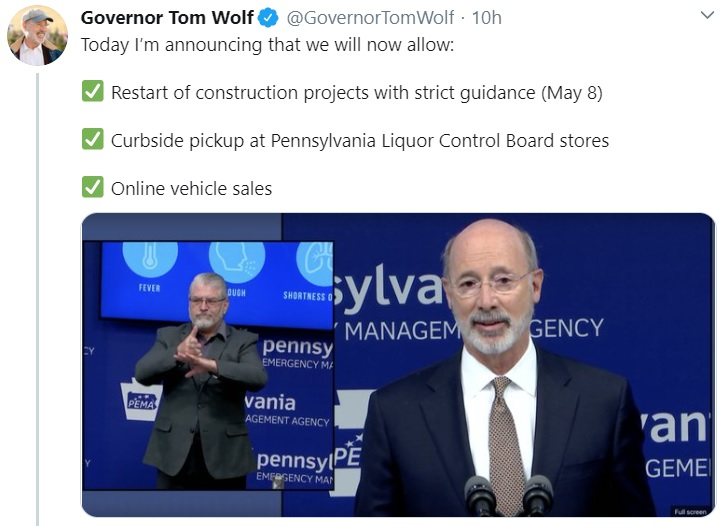With 792,913 cases of novel coronavirus and 42,517 fatalities, the United States is at the top of the list of countries reeling under the Covid-19 pandemic. Lock-down orders and restrictions were put in place as cases started piling up and as virus' epicenter started shifting from Europe to the US.
With patience running thin over stay-at-home orders, thousands of Americans have taken to streets in both Democratic and Republican-ruled states to demand the lifting of coronavirus restrictions.
These protests have been openly backed by President Trump, who in his 'LIBERATE' tweets and press briefings has called governors to lift restrictions that would in turn lead to resumption of economic activity -- an important issue in Trump's re-election bid.
Anti-lockdown protests in United States

On Monday, hundreds gathered at the Capitol building in Pennsylvania, a Democrat governed state. During the protests that lasted for three hours, protesters honked car horns, chanted slogans like "shelter in place isn't freedom" and waved the US flags. Few wore masks and almost no one practiced social distancing required to protect oneself from contracting coronavirus.
Right now in Harrisburg, Pennsylvania, Americans are holding an anti quarantine demonstration which is due to go nationwide. pic.twitter.com/RmiecD4ZUa
— Tony (@Mrtdogg) April 20, 2020
"Jesus is my vaccine!" was written on one of the trucks at the protest, while several protesters were seen carrying arms as pro-gun rights groups are one of the chief organizers of these demonstrations.
Harrisburg, Pennsylvania (📺) Anti-quarantine protest that will lead to massive Coronavirus infections. pic.twitter.com/eetuOgxMG5
— COVID-19 Coronavirus (@COVID19Coronav1) April 20, 2020
"This is right now in Pennsylvania. Those are loaded assault rifles. Now juxtapose that you against Steve Taylor, having a mental health crisis with a baseball bat at a Walmart on Saturday. Or 12 year old Tamir Rice playing at a park." #repost via: @shaunking #coronavirus #COVID pic.twitter.com/Ft2hUKcn6C
— Da_Skeptunes (@Robin_Volpi) April 21, 2020
Among the Pennsylvania protesters was Republic lawmaker Aaron Bernstine, who said: "Our new normal does not mean we will sacrifice our freedoms for the safety of our country", followed by public chants of "U.S.A.!", AFP reported.
"End this shutdown now!", said another Republican lawmaker Russ Diamond, as according to him, the "cure" [restrictions] could be "worse than the disease".
The protests took place as Pennsylvania governor Tom Wolf, extended stay-at-home orders till May 8.

Similar protests took place in California. In Arizona, three nurses stood before the demonstrators, while a few hundred protesters gathered in Ohio.
Another look at the ‘operation gridlock’ protest taking place outside the State Capitol in Downtown Sacramento. pic.twitter.com/3N268zgGud
— Daniela Pardo (@danielapardotv) April 20, 2020
Three nurses showed up to counter-protest the Arizona “liberate†rally.
— Joshua Potash (@JoshuaPotash) April 21, 2020
They stood silently.
And the “liberate†crowd didn’t leave them alone. They stood in their faces and berated them.
These women are heroes, and deserve so much better.
pic.twitter.com/h3NrLfvN13
A lot of the “liberate†footage is meant to make these events look big.
— Joshua Potash (@JoshuaPotash) April 20, 2020
Here’s what the protest in Ohio today really looks like.
pic.twitter.com/0uxRuG0IxS
Three US states loosen restrictions
Amid the ongoing protests, three southern states -- Georgia, Tennessee and South Carolina -- have become the latest to lift certain restrictions. Georgia's governor Brian Kemp said that gyms, bowling alleys, salons and body art studios will be allowed to re-open from Friday (April 24) onwards, with Minimum Basic Operations.

South Carolina governor Henry McMaster restored access to public beaches and allowed some retailers to re-open, who're advised to practice social distancing.

Tennessee announced that businesses would start re-opening from April 27. Other states that are easing restrictions include Minnesota, Texas, Vermont, Ohio, Idaho, Florida, North Dakota, Montana, New York, Connecticut and New Jersey.









